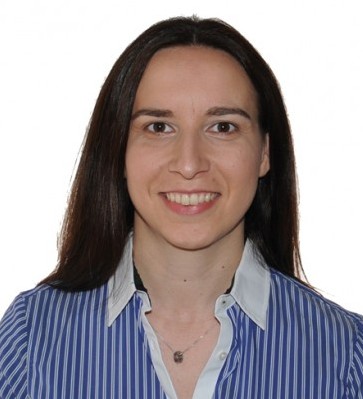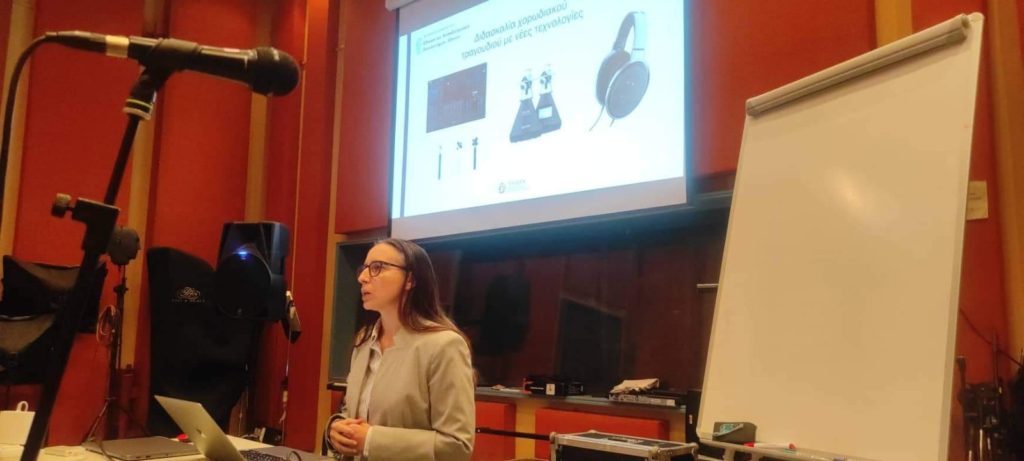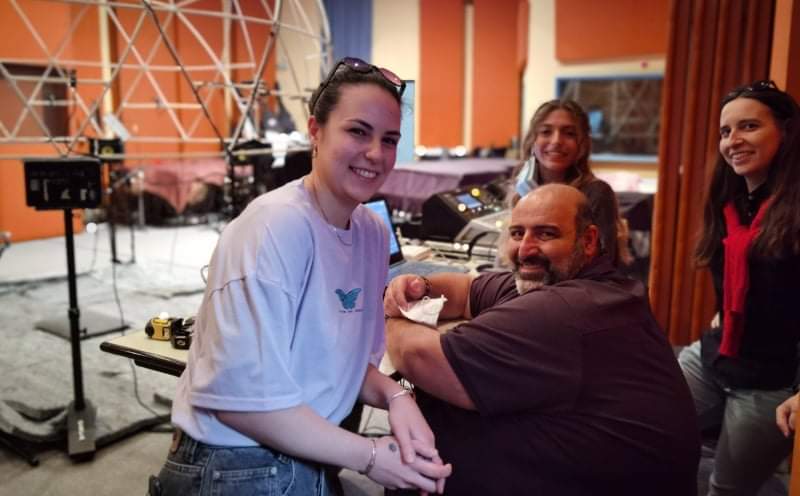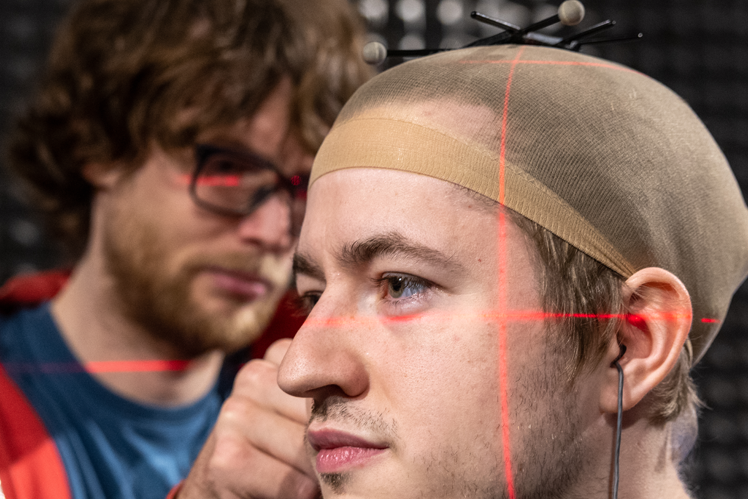In profile: Areti Andreopoulou
Meet Areti Andreopoulou. Areti is Assistant Professor in the Music Technology Laboratory of Music Acoustics and Technology (LabMAT) at the National and Kapodistrian University of Athens (NKUA) in Greece. She is interested in spatial audio, immersive auditory perception, and audio in xR (encompasses augmented reality (AR), virtual reality (VR), and mixed reality (MR)).

Get in touch with Areti via LinkedIn (opens in a new tab) | See Areti’s publications and networks on ResearchGate (opens in a new tab)
Areti’s work and career
What is your scientific background?
I have earned a bachelor’s degree in Music Studies / Musicology from the National and Kapodistrian University of Athens (NKUA), Greece and a Master’s and a PhD in Music Technology from New York University (NYU), USA.
How did you choose your field of study?
Math, Physics, and Music have always intrigued me. Music Technology is a very broad research-field which combines the above into something meaningful. When during my graduate studies I was introduced to audio signal processing and programming, I realized that merging all my interests into a single field of study was possible. I took a few courses in spatial audio, signal processing, and perception, I started attending scientific conferences in the field, and worked for/with some very inspiring people in academia and research. Not soon after, I realized that 3D and Immersive audio technologies is the scientific field I will pursue in my career.
- What are you working on in SONICOM: in the past, now, or soon?
Our current research within SONICOM concerns the investigation of sound directivity of understudied traditional Greek musical instruments and the assessment of its perceptual impact in virtual reality applications, where audio is the primary modality of interest. Moving forward we will focus on remote music teaching, as an alternative to in-person music classes, and investigate the impact of certain auditory parameters (spatialization, auditory immersion, audio quality, source directivity etc.) on the quality, realism, and comprehension of the musical information.

- Why did you choose to become a scientist?
I enjoy research as much as I enjoy teaching, and, to me, being a scientist is a wonderful opportunity to pursue both as a carrier.
- What are your biggest achievements?
I consider my big achievements are all to do with the accomplishments of my students, research team members, and colleagues. Whether they concern the completion of a class project, a research publication, or a successful research grant, it’s always very rewarding to know that my involvement in it has played its role and had its significance.
- What are the hardest parts related to your work?
I think that most early career scientists and academics face similar difficulties in their work which very often are related to our difficulty in setting boundaries. Balancing my workload between teaching, mentoring, research, meetings, and administrative work oftentimes seems like an impossible task. It is like a new multi-piece puzzle which I have to solve as fast as possible every week in order to maintain a realistic and viable schedule.
Some musings on women in science
How do you feel the current environment is for women in science?
This is a complex and multifaceted topic. While there have been significant strides made towards gender equality, diversity, and representation in STEM, women and gender-diverse individuals still face challenges such as lack of mentorship, lack of sponsorship, gender bias, discrimination etc. We do need to acknowledge however that there have been steps made towards addressing these challenges and creating more inclusive and supportive environments for everyone in science. I think that we all need to keep our eyes and ears wide open so as to identify potential cases of injustice and discrimination and stand with those who are being wronged.
- Where do you see women in science in 10 years’ time?
I feel optimistic that, in 10 years’ time, the representation and inclusion of women and gender-diverse individuals in science will improve significantly. With a continued focus on diversity, equity, and inclusion, more individuals from underrepresented groups, including not only women but also gender-diverse individuals, transgender people, and people of diverse racial/ethnic/religious backgrounds, will have access to opportunities and support to succeed in scientific fields. This increased representation will bring new perspectives to scientific research, leading to more innovative work.
 In your opinion, which changes, if any, are needed in the scientific system to engage more women in science and create more future female scientists?
In your opinion, which changes, if any, are needed in the scientific system to engage more women in science and create more future female scientists?
I can think of a lot of steps that can be taken to encourage the engagement of more women and individuals from underrepresented groups in science, such as addressing any biases and stereotypes in the scientific community, securing equal opportunities for everyone, providing access to resources/funding, mentorship, and investing in outreach programs encouraging underrepresented groups to pursue careers in STEM.
Outside the lab
Do you come from an academic family?
No, I don’t.
- Is it hard to manage both career and private life? How do you manage both?
I have always had my reservations about this question. I have never quite understood the reason it is so common in interviews. I think, its true purpose is to remind us that balancing a career and a private life is hard for everyone. How do I manage them both? I do the best I can. And frankly there had been periods in my life when work had taken full control, and others when my career had taken a step back. I think that this is true for most of us. We must always work with what we have and try our best to achieve balance in our lives.
- If you had the option to give advice to a younger version of yourself, what would that be?
Stay focused; have trust in yourself; collaborate more; build strong connections with your peers, as they will be your future work colleagues and collaborators/partners.




